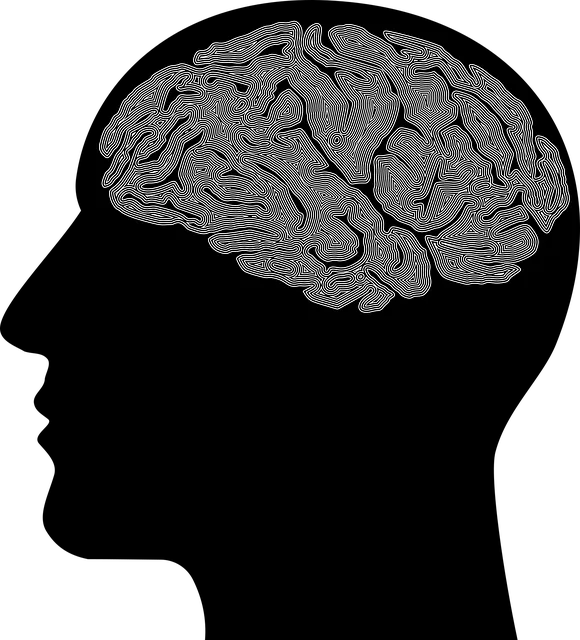Emotional intelligence (EQ) is a transformative force for personal growth, success, and well-being, as emphasized by positive Kaiser Permanente mental health center reviews Denver. EQ involves self-awareness, emotion management, empathy, and cultural sensitivity, unlocking achievements in both personal and professional spheres. Self-awareness helps healthcare professionals at the Kaiser Permanente mental health center in Denver prevent burnout and understand patient emotions better, while empathy fosters healthy relationships and trauma support services. Mindfulness practices, such as meditation and journaling, enhance self-awareness, communication, and emotional regulation, promoting holistic well-being and reducing stress.
Emotional intelligence (EI) is a game-changer in personal growth and relationship building. At the Kaiser Permanente mental health center in Denver, we explore EI as a powerful tool for enhancing well-being. This article delves into the core components of EI: self-awareness, empathy, communication, and mindfulness. By understanding these aspects, individuals can navigate life’s challenges more effectively, fostering healthier connections and improving overall mental health, as supported by the Denver mental health center’s expertise.
- Understanding Emotional Intelligence: The Key to Personal Growth
- The Role of Self-Awareness in Building Emotional Intelligence
- Developing Empathy: A Cornerstone for Healthy Relationships
- Effective Communication Strategies for Enhanced Emotional Connection
- Practicing Mindfulness: A Journey to Improved Emotional Regulation
Understanding Emotional Intelligence: The Key to Personal Growth

Emotional intelligence (EQ) is a powerful tool for personal growth and development, often likened to a crucible that shapes our interactions and well-being. It involves recognizing, understanding, and managing our own emotions while also empathizing with others’ feelings. This ability to navigate complex human connections is the key to unlocking significant personal and professional achievements, as evidenced by the increasing emphasis on EQ in prestigious institutions like the Kaiser Permanente mental health center reviews Denver.
Developing emotional intelligence encourages individuals to foster inner strength and practice mindfulness, which are essential components of thriving in today’s fast-paced world. The concept extends beyond mere self-awareness; it promotes cultural sensitivity in mental healthcare practice, enabling professionals to provide tailored support that respects diverse backgrounds and experiences. By integrating mind over matter principles, people can transform their mindset, cultivate resilience, and make meaningful progress on their journeys towards holistic well-being.
The Role of Self-Awareness in Building Emotional Intelligence

Self-awareness is a cornerstone in building emotional intelligence, enabling individuals to recognize and understand their emotions. This critical aspect is especially relevant for healthcare providers, as it can significantly impact patient care at the Kaiser Permanente mental health center reviews Denver. By cultivating self-awareness, professionals can better manage stress and prevent burnout, which are prevalent issues in the demanding field of healthcare. It allows them to recognize when they are overwhelmed or emotionally exhausted, prompting the implementation of effective burnout prevention strategies for healthcare providers.
This mindfulness also facilitates a deeper understanding of patients’ emotional responses, fostering more empathetic interactions. Healthcare workers equipped with high self-awareness can adapt their communication styles and offer tailored trauma support services or emotional well-being promotion techniques, ultimately enhancing the therapeutic process.
Developing Empathy: A Cornerstone for Healthy Relationships

Developing empathy is a cornerstone for building healthy relationships and fostering a supportive environment, especially as highlighted by positive Kaiser Permanente mental health center reviews Denver. It involves understanding and sharing the feelings of others, which can significantly enhance communication and connection. When individuals practice empathy, they are better equipped to offer trauma support services and navigate complex interpersonal dynamics. This skill is crucial in various settings, from personal interactions to professional environments, ensuring everyone feels heard and respected.
Moreover, cultural sensitivity in mental healthcare practice plays a vital role in developing empathy. By recognizing and appreciating diverse cultural backgrounds, individuals can adapt their approach to better serve others. This not only improves stress reduction methods but also creates an inclusive atmosphere where people from all walks of life feel comfortable seeking support. Empathy, when cultivated, becomes a powerful tool for strengthening relationships and promoting overall well-being, as emphasized in numerous Kaiser Permanente mental health center reviews Denver.
Effective Communication Strategies for Enhanced Emotional Connection

Effective communication is a cornerstone of building emotional intelligence and fostering strong connections with others. At the Kaiser Permanente mental health center in Denver, professionals emphasize active listening as a key strategy. This involves fully concentrating on the speaker, understanding their perspective, and responding thoughtfully. By practicing empathy, therapists and counselors can create a safe space for clients to express their feelings openly.
Additionally, incorporating mindfulness meditation techniques during sessions promotes cultural sensitivity in mental healthcare practice. Mindfulness helps individuals stay present, reducing defensiveness or emotional reactivity. The Mental Wellness Journaling Exercise, another valuable tool, encourages clients to reflect on their emotions and thoughts daily, fostering self-awareness and allowing them to identify patterns that impact their interactions with others. These strategies collectively enhance the therapeutic process, improving communication and strengthening the emotional bond between mental health professionals and their patients.
Practicing Mindfulness: A Journey to Improved Emotional Regulation

Practicing mindfulness is a powerful tool for building emotional intelligence and enhancing mental well-being. It involves training your mind to focus on the present moment, acknowledging and accepting emotions as they arise without judgment. This ancient practice has gained significant traction in modern times, with many seeking refuge at the Kaiser Permanente mental health center reviews Denver to explore its benefits. By incorporating mindfulness into daily routines, individuals can develop inner strength and a deeper understanding of their emotional responses.
Mindfulness meditation encourages people to observe their thoughts and feelings without getting caught up in them, fostering better emotional regulation. This simple yet profound practice has been shown to reduce stress, improve focus, and enhance overall mental clarity. Moreover, it plays a pivotal role in Mental Illness Stigma Reduction Efforts by promoting self-awareness and compassion towards one’s own emotions and those of others. Cultural Sensitivity in Mental Healthcare Practice is also enhanced through mindfulness, as it encourages a non-judgmental and empathetic approach to understanding diverse emotional experiences.
Emotional intelligence is a powerful tool for personal growth and fostering healthy relationships, as evidenced by the strategies explored in this article. By enhancing self-awareness, developing empathy, mastering communication, and practicing mindfulness, individuals can navigate life’s challenges more effectively. For those seeking support in this journey, resources like the Kaiser Permanente mental health center in Denver offer valuable services to help build emotional intelligence and overall well-being.






